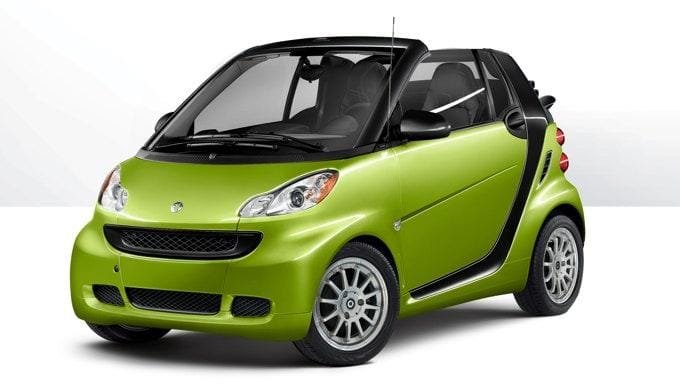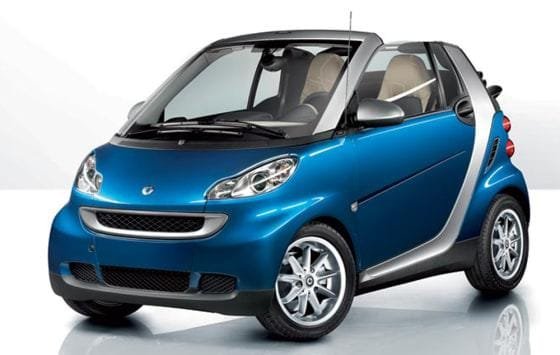Table of Contents
As the world accelerates into the digital age, the humble automobile is undergoing a profound transformation. Gone are the days when drivers relied solely on their instincts and a trusty map; the future now beckons with a new breed of vehicles that promise a level of intelligence previously confined to science fiction. Smart car technology is not just reshaping how we drive but also how we perceive mobility itself.
Imagine a world where your car is not merely a mode of transportation but an interconnected companion. These futuristic vehicles leverage advanced technologies such as artificial intelligence, autonomous driving, and IoT integration to create a seamless travel experience. The implications extend beyond individual convenience; they encompass broader societal changes, including sustainability, urban planning, and enhanced safety protocols.
As this evolution unfolds, it’s crucial to explore the implications and innovations driving this shift. Are we ready to embrace a future where cars are intelligent enough to communicate with each other, and our roadways are transformed into dynamic ecosystems? Join us as we embark on a journey to uncover what lies ahead in the realm of smart car technology.
Exploring the Smart Car Revolution and Its Impact on Urban Mobility
The advent of smart car technology promises to transform urban landscapes, optimizing the way we navigate crowded streets. Connected vehicles communicate with one another and infrastructure, making real-time adjustments that enhance traffic flow and reduce congestion. As cities embrace this technology, the potential for smarter public transportation systems becomes increasingly apparent, paving the way for fewer vehicles and cleaner air.
Moreover, the integration of artificial intelligence empowers smart cars to learn from user behavior, promoting personalized travel experiences. This level of customization fosters a culture of shared mobility, where ride-sharing services thrive, as residents seek efficient alternatives to private car ownership. As the revolution on wheels progresses, urban mobility will evolve, inherently enhancing quality of life.
| Benefits of Smart Cars | Urban Impact |
|---|---|
| Reduced Emissions | Cleaner Air Quality |
| Increased Safety | Fewer Accidents |
| Enhanced Efficiency | Streamlined Traffic |
| Cost Savings | Affordable Travel Options |

Integrating Artificial Intelligence for Enhanced Driver Experience
As smart car technology evolves, artificial intelligence is at the forefront, crafting a seamless driving experience. By employing AI algorithms, vehicles can learn driver preferences, enhance navigation accuracy, and even predict maintenance needs. This means less time worrying about logistics and more time enjoying the journey.
Additionally, the integration of AI facilitates real-time insights, allowing drivers to make informed decisions. Features like intelligent traffic routing and adaptive cruise control exemplify how smart systems are transforming traditional driving. Imagine enjoying a drive where your car intuitively understands your mood and adjusts settings to suit your preferences.
| AI Feature | Benefit |
|---|---|
| Predictive Maintenance | Reduces unexpected breakdowns |
| Adaptive Navigation | Optimizes travel time |
| Smart Climate Control | Enhances driver comfort |

Sustainable Innovations Driving the Next Generation of Eco-Friendly Vehicles
As the automotive industry accelerates toward a sustainable future, innovative technologies are leading the charge. Electric drivetrains, powered by renewable energy, are set to replace traditional internal combustion engines. Battery advancements and regenerative braking systems enhance efficiency, while smart charging networks offer convenient solutions for everyday users. These vehicles utilize less energy, contributing to significant reductions in carbon footprints.
Moreover, the integration of AI and IoT technologies is transforming the driving experience. Vehicles equipped with smart features provide real-time data on energy consumption and route optimization, ensuring minimal environmental impact. To visualize these advances, consider the following table that highlights key innovations:
| Innovation | Description |
|---|---|
| Solar-Powered Vehicles | Utilize solar panels for supplementary energy. |
| Biodegradable Materials | Eco-friendly components in vehicle design. |
| Vehicle-to-Grid Technology | Allows vehicles to supply energy back to the grid. |

Navigating the Future: Policy Recommendations for Smart Car Adoption
To foster the widespread adoption of smart cars, policymakers must create frameworks that prioritize safety and innovation. Key recommendations include:
- Standardized Regulations: Establish uniform safety standards across states to ensure consistent development and testing of smart technologies.
- Incentives for Manufacturers: Offer tax breaks and grants to encourage automakers to invest in R&D for smart vehicle technology.
- Public-Private Partnerships: Collaborate with tech companies to integrate cutting-edge features safely into existing transport infrastructures.
Furthermore, enhancing public awareness and education is vital. Implementing initiatives should include:
- Community Engagement: Host workshops and information sessions to familiarize the public with smart car benefits.
- Testing Programs: Create pilot programs where citizens can experience the technology firsthand, easing concerns and building trust.
- Feedback Mechanisms: Establish channels for consumers to voice their experiences, guiding future improvements.
Closing Remarks
As we accelerate into the era of smart car technology, it’s clear that our relationship with transportation is undergoing a profound evolution. The integration of advanced technologies promises not only increased safety but also enhanced convenience and efficiency in our daily commutes.
Key takeaways include:
- Autonomous driving capabilities that reduce human error and increase road safety.
- Connected vehicle systems enabling seamless communication between cars and infrastructure.
- Sustainability initiatives focused on electric vehicles and reduced emissions.
Embracing these innovations will not only transform how we perceive mobility but also shape the cities of tomorrow, creating a more cohesive ecosystem.
In closing, the future of smart cars is not just about individual convenience; it’s about creating a smarter and more sustainable world for everyone. As technology continues to advance at an unprecedented pace, staying informed and adaptable will be key to making the most of this automotive revolution. Buckle up for the journey ahead!



